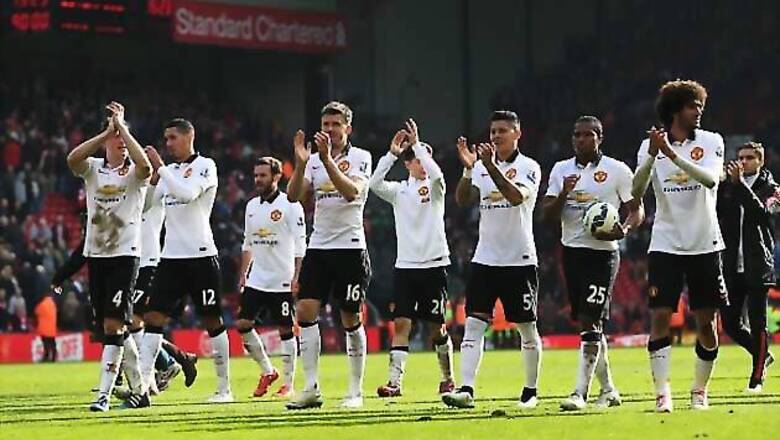
views
London: English Premier League clubs are collectively in profit for the first time in 15 years thanks to surging television cash and a slowing of wage growth.
Accountancy firm Deloitte reported that the 20 teams in 2013-14 generated a combined pre-tax profit of 190 million pounds (now $283 million) after losses of 316 million pounds ($470 million) in 2012-13.
The 2013-14 season was the start of three-year television deals worth more than $8 billion for the world's richest soccer league.
Combined with strong commercial growth at the biggest moneymaking clubs - particularly Manchester United - revenue grew 29 percent to a record 3.3 billion pounds ($4.9 billion) across the topflight.
Although wages grew 6 percent year-on-year to 1.9 billion pounds ($2.8 billion), the wages-to-revenue ratio fell to 58 percent - the lowest since the 1998-99 season, when the clubs were last collectively in profit.
"The introduction of cost control regulations at both a European and domestic level has caused many clubs to watch their spending more closely than ever before and created a useful tool for clubs to reduce the inflationary pressures during negotiations with players and agents," said Adam Bull, a senior consultant in the sports division at Deloitte.
"Also, the current broadcast deal has given Premier League clubs such a large revenue advantage over the vast majority of European clubs that they can still attract the top playing talent without over stretching themselves financially."
The cash available to clubs will soar again from the 2016-17 season when the next three-year cycle of television rights starts. Domestic rights holders have already agreed to pay more than $8 billion to broadcast games and the league is yet to complete the overseas deals.
"The revenue increases show no sign of ending and should make this season's profit a regular outcome," Dan Jones, a partner in the Deloitte sports division, said. "Such profits provide the clubs with a great opportunity to invest further in their facilities and youth development activities, but will also no doubt make Premier League clubs even more attractive to potential investors than they already were.
"They can now be reasonably profitable businesses as well as trophy assets."
Deloitte said its figures are based on company accounts or "informed estimates."


















Comments
0 comment